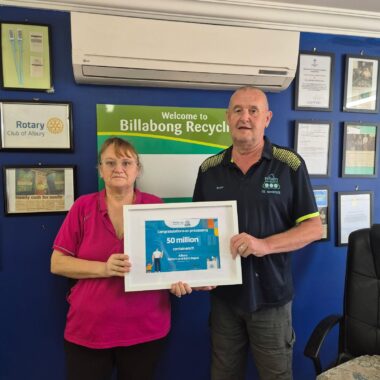Monash University is calling for Australia’s federal and state governments to take a bold leap on transitioning the nation to a sustainable and innovative circular economy.
In a submission to the Productivity Commission’s inquiry into the circular economy, Monash has recommended a raft of policy, funding and regulatory settings that could make Australia the global leader in rethinking the lifecycle of everything we make, buy and dispose of.
The university earlier this year launched Circular Economy Labs to provide evidence-based research and policy development to facilitate the transition to a circular economy, an economic system in which resource inputs, waste, emissions and energy leakages are minimised by cycling, extending, intensifying, and dematerialising material, energy and water loops.
The transition is critical, with global waste projected to increase by a startling 70 per cent by 2050 and global raw material extraction is projected to double by 2060.
Monash’s recommendations to the Productivity Commission aim to link public investment with long-term societal outcomes, mission-oriented strategies, attract private sector buy-in, de-risk investments, and accelerate the scale-up of circular business models and technologies.
These include seeking trade agreements with other nations that prioritise global resilient and responsible supply chains, establishing Circular Economy Standards Board to regulate Australia’s circular economy, implementing circular economy-focused public procurement rules, and establishing funds to support circular start ups and the transition of existing production and logistics chains.
Monash Sustainable Development Institute’s Martin Geissdoerfer, Associate Professor for Circular Economy Transitions, said the transition to a circular economy could reduce global greenhouse gas emissions by 39 per cent by 2050.
“That reduction would provide an additional $210 billion in GDP, but we need to massively scale up to realise that potential,” he said.
“There’s always a risk of pilot projects not being completed, so we are advocating for a nationally-consistent approach to support a sustainable system that works in practice for industry, business and consumers.
“With the momentum we are building with industry partners, and Monash’s unique interdisciplinary circular economy expertise in the region, I believe Australia can not only level up but become a pioneer in many fields, such as critical minerals, pharmaceutical packaging, or harnessing cheap solar for large-scale circularity.”
Circular Economy Labs Senior Research Fellow Jennifer Macklin said Monash’s recommendations acknowledge the mammoth task ahead for governments to implement the policy, funding and regulatory settings required.
“We know that’s not going to happen overnight and we understand the deviation of what is required from the status quo means it will take governments some time, which is why they need to start building momentum now,” she said.
“But the role of industry, organisational consumers and households will also be important, and this is where the research we are doing into ecosystem innovation and behaviour change will be vital to support that transition in practice.
“We can see promising first examples of our work bearing fruit – earlier this year Monash partnered with CSIRO to accelerate business transitions to the circular economy through mission-oriented research and development – yet without governments facilitating the right conditions, we won’t unlock the full potential of the circular economy to deliver large-scale reductions in waste and emissions.”
The Productivity Commission’s inquiry examines Australia’s opportunities in the circular economy to improve materials productivity and efficiency in ways that benefit the economy and the environment.
It is expected to report back to government in 2025.
Read Monash’s submission to the Productivity Commission inquiry here.
Media enquiries:
Toni Brient
Media and Communications Manager, Monash University
Contact: 0456 428 906 or [email protected]


